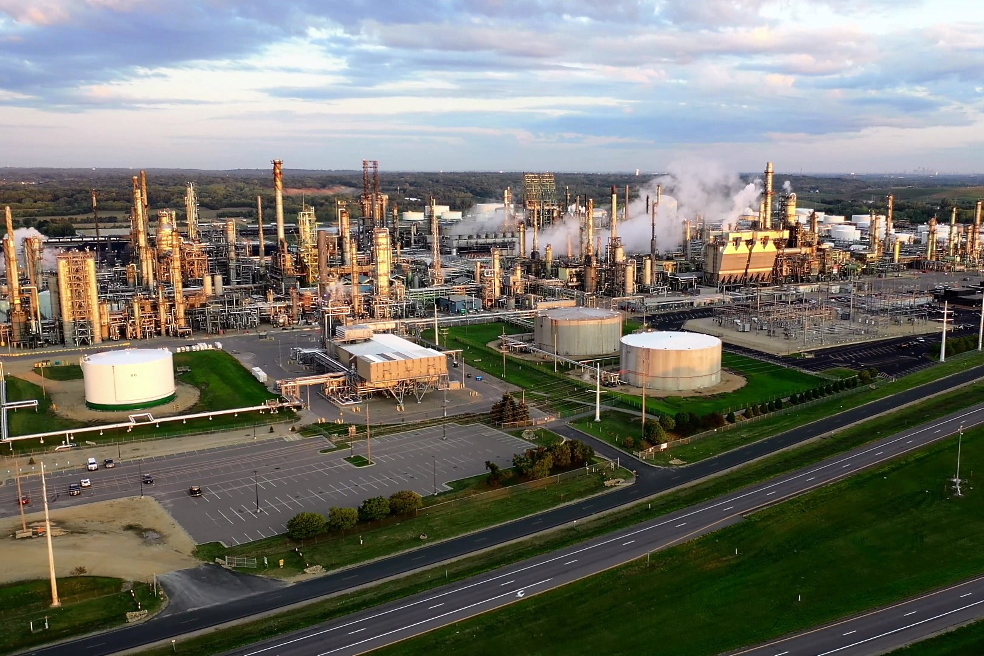To consider an application for financing, fill out the form and send it to us by e-mail along with the project brief, or contact our experts
Gaining access to large loans and other sources of financing allows companies to introduce more efficient technologies and equipment to extract hard-to-reach resources from fields that were previously considered unprofitable.
Rising prices for hydrocarbons generally favor the development of such facilities, however, increasing competition for capital requires companies in the oil and gas sector to be more flexible and adaptable to new financial realities.
Effective project management in the oil and gas industry minimizes risks such as schedule delays, cost overruns, and underperformance.
These risks often coexist with each other, requiring complex solutions. For example, any schedule delays result in cost overruns through increased facility maintenance costs and associated contract penalties. Clearly, professional project management services are critical to success in the highly competitive oil and gas industry.
Table: Main types of risks in oil and gas projects.
| Risk | Brief description |
| Cost overruns | Cost overruns during the implementation of an investment project may be the result of improper planning and initial incorrect budget estimates, as well as the result of high inflation or force majeure, which must be specified in the relevant contract documentation. The reality is that many oil and gas projects end with actual cost overruns of over 20%, which is not uncommon for large investments in a highly uncertain environment. |
| Schedule delays | The actual time frame for the implementation of an investment project can vary significantly, which depends on a number of factors. Real market situation, the supply of materials and equipment, political barriers, weather conditions and many other factors can lead to a delay in the schedule, which should be taken into account by all stakeholders. |
| Failure to achieve performance | Failure to achieve project objectives, in particular the low productivity of an oil and gas project, is considered one of the most serious risks. Since many of projects are based on hard-to-reach deposits, even slight deviations from planned production can drastically reduce the project's cash flows and jeopardize debt repayment. |
The real situation with hydrocarbon reserves makes oil and gas projects one of the most difficult to manage and finance.
This sector brings together an extremely wide range of financial, engineering and management solutions that must be applied flexibly in different climatic, economic, regulatory and political environments around the world.
Any unforeseen event, such as a delay in the delivery of drilling equipment or a ban on the supply of high technology to a foreign partner due to geopolitical issues, can easily destroy the fragile chains of an international project and jeopardize investments. The difficulties of managing oil and gas projects in today's realities highlight the need for professional services in this area.
Financing, engineering, contracting, procurement, construction, marketing and other aspects of each project must be supervised by professionals with sufficient experience and knowledge. It should also be remembered that the success of any oil and gas project depends at least half on preliminary studies, such as natural reserves assessment, supply chain analysis, financial modeling , etc.
Phases of oil and gas project development
Project management in most cases is carried out from a standard algorithm that is adapted to the conditions of a particular project.In any case, this process includes the initiation phase, planning, engineering support and execution, as described below.
In the initial stages of oil and gas project development, participants have a very vague idea of the final cost, but with each subsequent stage of planning, financial needs become more precise. This is due to a better understanding of the challenges, such as licensing, access to technology, insurance, and so on. At these stages, action plans and decisions are laid that will ensure the financial sustainability of the entire project in the future.
Project initiation and definition phase
Although in the past the oil and gas industry could hardly be called innovative or high-tech, today many new investment projects are inextricably linked with the introduction of new technologies that make it possible to successfully exploit hard-to-reach fields.New business opportunities that open up as a result of rising world prices for hydrocarbons, geopolitical changes or technical breakthroughs form the basis for the initiation of major projects in this sector.

Regardless of the reasons for developing a new project and the motivation of investors, each project (oil well, refinery, LNG terminal, liquefied natural gas plant) must be well justified.
Comprehensive research conducted in the pre-investment stage allows sponsors to confidently move forward to the next phases of the project.
Project initiation refers to any form of proposal, theoretical substantiation of future investments. Of course, at this stage, the participants do not have a clear idea of the future investment needs, cash flows, funding schedules and payback periods of the project. This uncertainty is aggravated by the fact that prices for oil, oil products and natural gas are characterized by extreme volatility, being highly dependent on the geopolitical situation and on the phase of the global economic cycle.
Therefore, the project will take on a clearer shape in the next phases, when the participants will draw up a certain budget and propose optimal financing models.
The definition of an oil and gas project is aimed at gradually narrowing the number of investment options, clarifying the parameters and financial needs of the project. A critical role at this stage is played by professional engineering services, laying the foundation for choosing the right technology, equipment and technical solutions.
During the first phase of project development, participants will have to resolve issues such as the supply of materials, the acquisition of technology, logistics and markets. It is important to correctly distribute the risks between the parties, which is laid down in the contractual structure.
Detailed design and engineering phase
It is important to note EPC contracting (Engineering, Procurement, Construction), which is widely used in capital-intensive projects.This is a comprehensive contracting approach that makes it easy to implement technically complex ideas by attracting experienced contractors.
A clear project framework, defined by the participants in the previous stages, allows the company to formulate technical requirements and start negotiations with engineering firms. Design activities, including field studies, environmental monitoring and other aspects, will allow the EPC contractor to select and purchase materials and equipment. During this phase, significant changes in the project budget can be expected, as engineers may encounter unforeseen difficulties.
Accordingly, after the end of the engineering phase, the participants can proceed to the selection of specific financial mechanisms for the future project, better understanding the investment needs and the schedule for spending funds.
The results of these studies will be required by potential lenders when making a decision on issuing a loan, especially when it comes to project finance (PF).
The soundness of the engineering decisions made during this phase has a significant impact on the success of the project and its financial viability. For this reason, many companies prefer to entrust the development of oil and gas projects to specialized companies with relevant experience.
Tenders, procurement and construction
Tendering and equipment procurement activities are time consuming and require highly experienced specialists.In this phase, it is important to find the most suitable suppliers, select certain types of equipment and their modifications for a particular project, conduct multi-stage negotiations and conclude contracts on suitable terms.
Since the oil and gas industry is largely internationalized, there may be tenders involving companies from dozens of countries. The complexity of technical, logistical and commercial decisions in such projects requires a professional approach to procurement.
Given the complexity and long lead times of modern oil and gas projects, the equipment procurement phase can be carried out in parallel with the construction phase. As new batches of equipment are purchased and delivered, construction teams will continue to install it and prepare the facility for commissioning.
Along with these activities, separate teams of specialists can carry out inspections, equipment adjustments and personnel training.
The procurement and construction phase is considered one of the longest and most complex. More than 70% of project costs come from equipment and installation, so the cost of any mistake at this stage is potentially high. In addition, investors and lenders strictly control the implementation of each planned stage of construction, often tying further funding to these milestones.
Putting the facility into operation
The scope and nature of the work associated with the commissioning of the project, largely depends on the type of project and its purpose.For example, an important stage in the commissioning of gas pipelines is pressure testing, checking the quality of connections, etc.
High-tech equipment of oil refineries is checked according to their protocols, with the involvement of the equipment manufacturer and independent experts.
There are certain safety standards that a project must meet in order to receive approvals. Among the goals of this phase is to ensure the safety of the object, as well as to check it for compliance with the requirements of the customer.
The latter is related to the achievement of planned productivity and, therefore, to the generation of cash flows sufficient to repay the project debt.

Given the scope of the tasks, the commissioning phase can stretch over several months, depending on the type and scale of the project.
Sometimes this phase is coincides with construction, when some teams install the equipment, while others check it and make final adjustments. All this requires careful planning, considering the complexity of the facilities and the potential fire and environmental risks (especially for offshore petroleum projects).
It should be noted that in project finance schemes, the peak of indebtedness usually occurs in this phase. Consequently, by the time the facility is put into operation, the risks increase. Good project management is especially important to this phase.
Professional management of oil and gas projects
As can be seen from the above structure of oil and gas projects, the management of such investments requires a lot of experience and skills.In particular, the project team should align the most challenging phases of the project in time to ensure a smooth and continuous construction and commissioning process at minimal cost.
The tasks of project management teams are extremely variable, ranging from controlling the purchase of equipment to financial tasks. These tasks cover a very wide range of qualifications and spread over wide geographic areas. Coordinating these teams requires managers who have a deep understanding of the oil and gas industry and are able to work in complex, changing environments.
In terms of human resources, the implementation of a large LNG terminal project usually involves several thousand people from different industries. International petroleum projects, which cover several stages from extraction to refining and transportation of oil, often involve tens of thousands of people.
The implementation of such projects directly requires colossal infrastructural, financial, technical and other resources.
Experts note that there is no single correct order for solving design problems. In each case, a flexible adaptation of the accumulated experience, knowledge and technologies to a specific project is necessary.
Many methods for organizing and managing large projects have been proposed, which are aimed at optimizing project goals, reducing costs, controlling risks, etc. In most cases, such projects are implemented by several parties, including engineering companies and consulting firms.
Are you looking for a one-stop shop for your investments?
Sedona Investments, together with its international partners, is ready to help you with large petroleum projects under the EPC contract.
We will help you choose the best contractor, organize the negotiation process and provide support at all stages of the project.
Contact us to find more.




